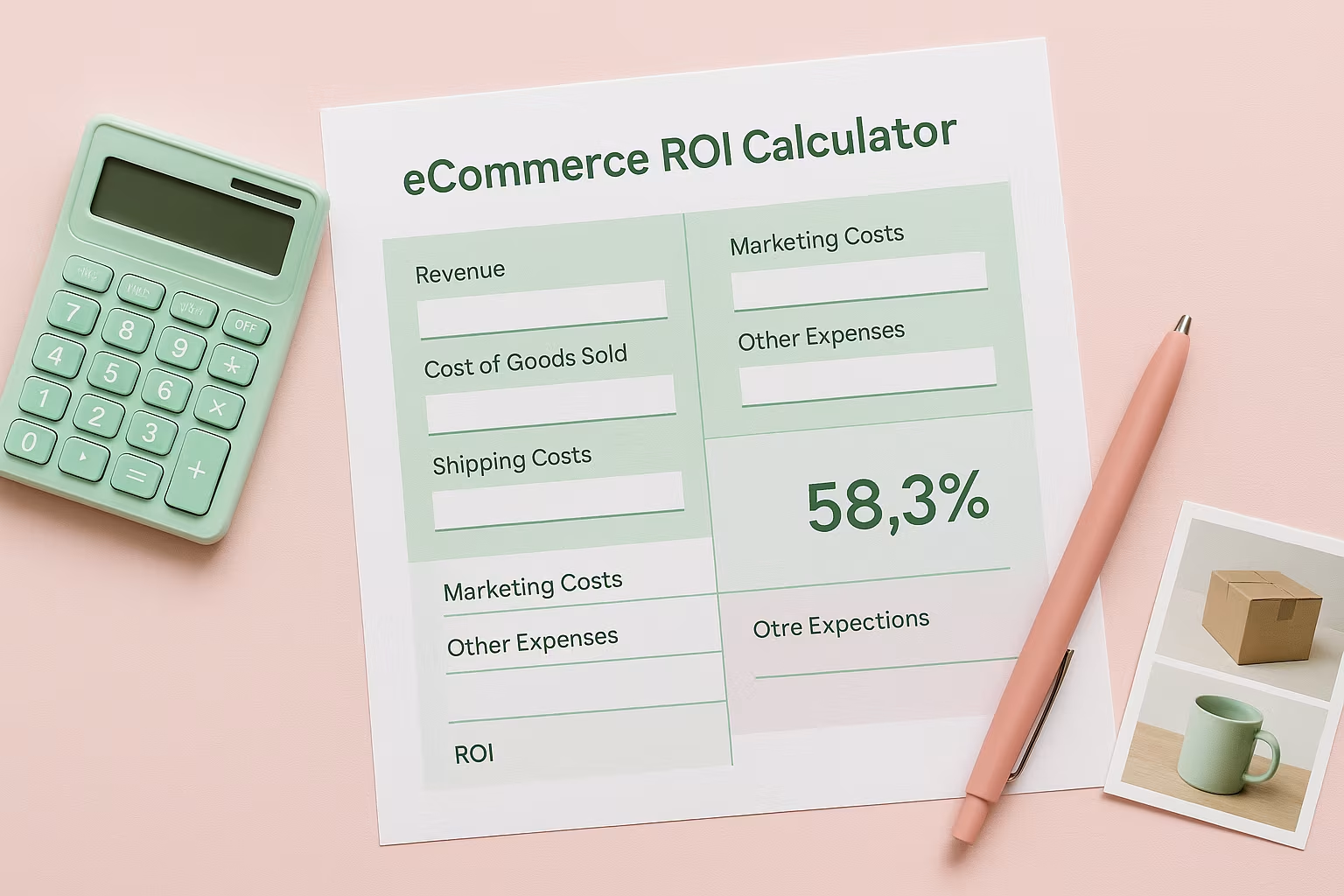.avif)
When it comes to dropshipping coffee online, choosing aesthetically attractive coffee labels is just as important. A coffee label isn't just about adding a label with product details to the coffee bag.
Your coffee label can make all the difference in growing your sales. Whether a business owner or planning to start one, here’s a guide to everything to know about creating coffee label designs.
4 simple tips for crafting a great coffee label design
The perfect coffee label should be informative, intriguing, and visually stunning to your audience. Your coffee label should draw attention and encourage the customer’s curiosity towards the product.
This, in turn, increases the likelihood of a purchase. A properly designed coffee label can also help boost brand awareness and recognition and enhance sales.
1. Make sure your labels list all relevant product details

The Food and Drug Administration (FDA) has specific guidelines for coffee labels, featuring 5 basic requirements.
Your coffee label must include the product identity, net content (weight), nutritional facts, ingredients (including allergen information), and contact information.
In the case of coffee, product identity details on the labels should include:
- The brand name and logo
- Product name
- Coffee bean varietal type (e.g. robusta, bourbon arabica, catuai arabica)
- If it's blend or single-origin
- If it's green coffee or roast-type
- If it's whole bean, ground, cold brew coffee, or other coffee-related product
Not sure how to choose the right coffee for your brand? Find out how to choose the best coffee beans here.
2. Add extra information to sell to the right audience

Some sellers and roasters go the extra mile to describe the coffee flavor profile.
This offers additional information about the coffee and ensures sellers reach their target audience. For instance, Kicking Horse Coffee adds descriptions, such as:
“velvety, earthy, and spirited”
to their 454 Horse Power single-origin Indonesian whole-bean coffee labels.
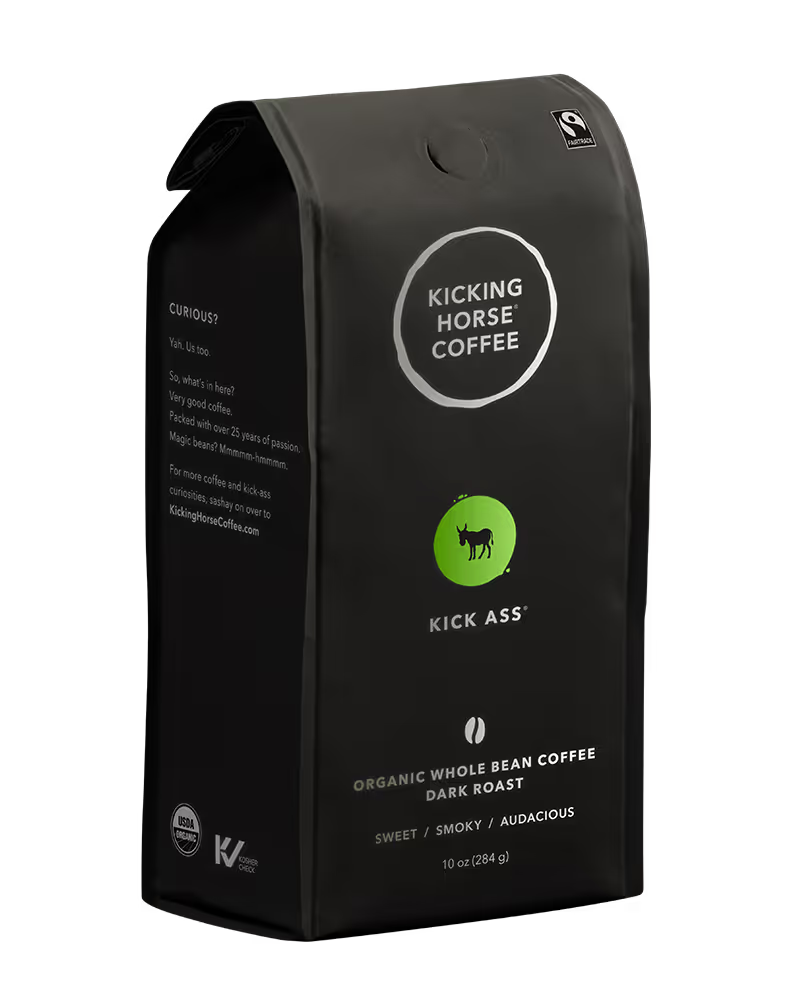
The same roaster describes its multiple-origin Indonesian and Central American whole bean blend as:
“sweet, smoky, and audacious”.
Other coffee packages might include additional information to appeal to a specific customer base. For example, coffee businesses that sell premium-quality certified coffee specify this coffee designation on their labels.
Similarly, business owners can label sustainable coffee to appeal to eco-conscious customers and those concerned about fair supply chains.
Some of the common certifications include CTZ, Rainforest Alliance, Fair Trade, and USDA Organic.

If you plan on selling your coffee beyond the American borders, you may require additional certifications listed on your coffee label or coffee bag. Properly research the requirements of the international markets you intend to ship to confirm the requirements.
For instance, shipping coffee to Canada requires approval from the Canadian Food Inspection Agency (CFIA).
3. Experiment with label colors during the design process

The color plays a massive role in branding, including how you incorporate it in your product labels. An attractive coffee label color easily draws the human eye while allowing your coffee packaging to stand out.
According to experts, the use of color psychology in branding and marketing influences consumer purchasing decisions and helps to build brands. Research suggests that over 90% of first product impressions are influenced by its color.
Further, choosing the right color for your brand enhances awareness and recognition by 80%. Colors even impact customer decisions - with over 90% of consumers using visuals (including colors) alone to make purchasing decisions.
When choosing your coffee label colors, consider the message you want to send, what the product represents, and how it aligns with your business brand. Many coffee brands choose a signature color to stand out on the shelves.

When designing your coffee label, experiment with colors - try bright and vibrant colors for a trendy approach. Or, opt for a more minimalistic and less vibrant color approach, if you want to convey a sustainability message.

Roasters like Oregon’s Café Mam have done an incredible job with their coffee label and package design to reflect their story and image. The Oregon-based roaster works directly with small native Maya farmers based in Chiapas, Mexico.
These farmers grow 100% organic, shade-grown, high altitude, and certified fair trade arabica coffee.
The coffee roaster features a characteristic brown bag package that doubles as the label surface. The front of the coffee design has images of realistic, everyday people.
This design gives the aura of a “small family-owned or small farmer-operated Central American coffee farm”.
It also creates the impression that the coffee is organic and sustainably sourced in small batches. This is exactly what Café Mam does; it’s safe to say the roaster has done successfully in coffee packaging label design.

4. Get custom coffee labels with Supliful label add-on
In this time and age, if you don't want to struggle to create your own labels from scratch, you can find experts, like Supliful, to assist you.
Supliful lets you pick from an array of coffee label design templates. You can download and print a free template or order paid coffee label templates.

Alternatively, you can choose custom coffee labels and enjoy the freedom to design your own label how you want. Supliful integrates with various tools and features that make it easy to craft your coffee labels from scratch.
FAQ
Incorporating a cross-section of coffee design elements can help your coffee label be unique. Apart from FDA-required data and label colors, add extra elements to differentiate your coffee packaging further. Think of elements, like unique graphics, creative typography, and short, but, descriptive writing.
Show off your coffee business achievements on the label. If you are an award-winning coffee company or use award-winning coffee, state this on the label. Additionally, list special certifications that help distinguish you, like USDA organic or Fair Trade coffee. You can add short descriptive writing or certification logos (where applicable) on the label.
When designing coffee labels, consider what your company is all about. Are you cool, new age, and trendy? Old school and traditional? Eco-conscious focused? Tone does matter in coffee label design as it helps introduce your brand. The tone isn't reflected in words alone. The overall label and package design, including colors and style, combine to create the tone of your brand.
Related blogs
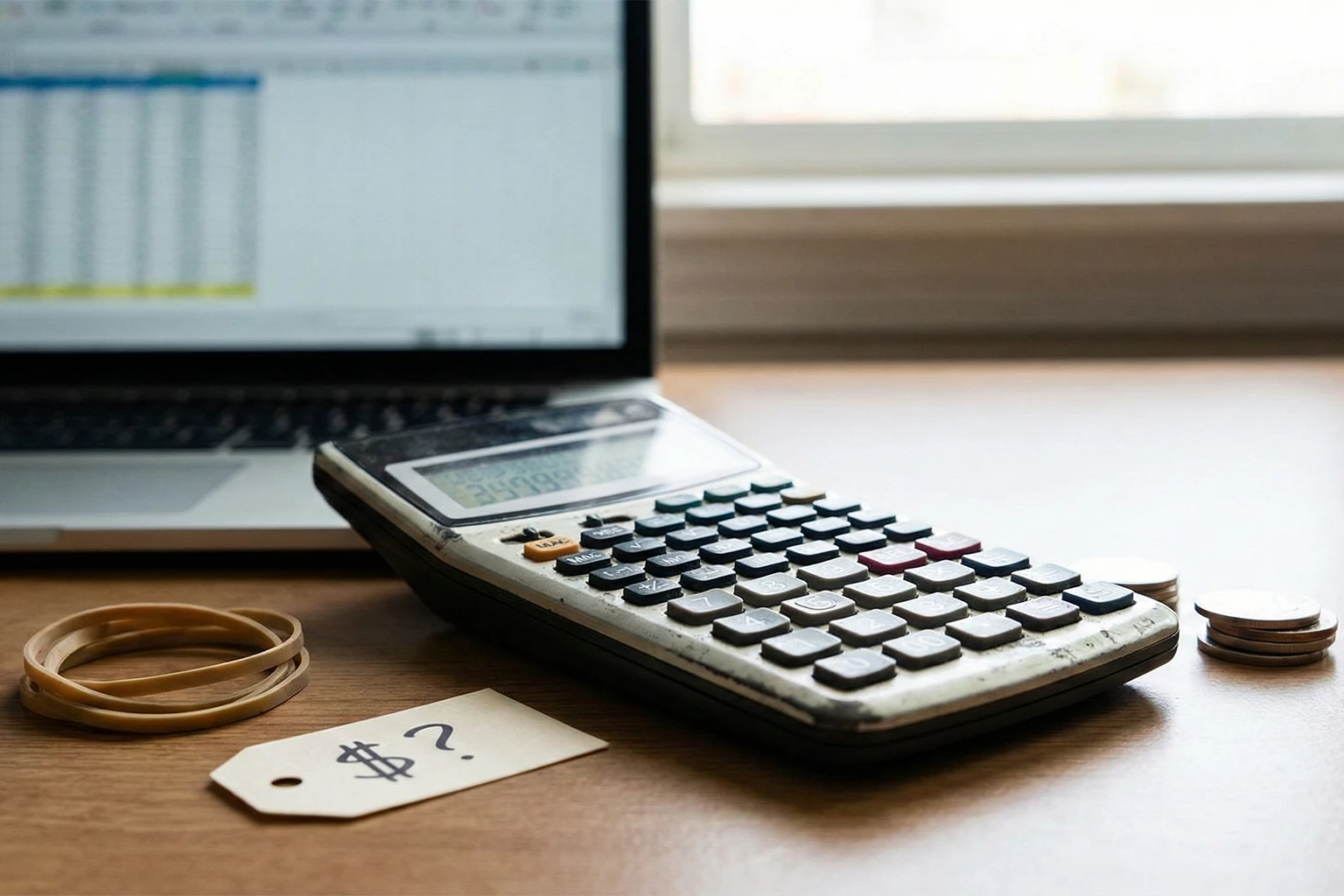
Price Elasticity Of Demand Calculator: Predict Revenue Impact in Seconds
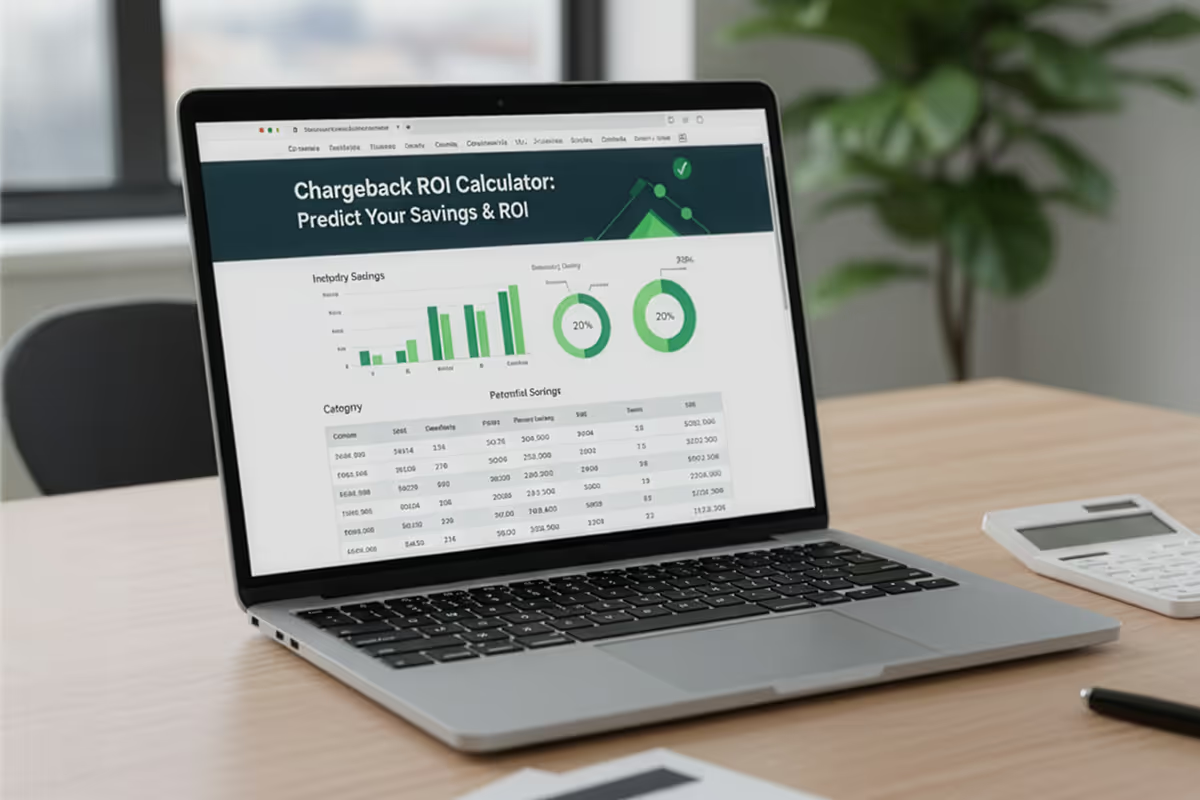
Chargeback ROI Calculator: Predict Your Savings and ROI in Under 10 Seconds
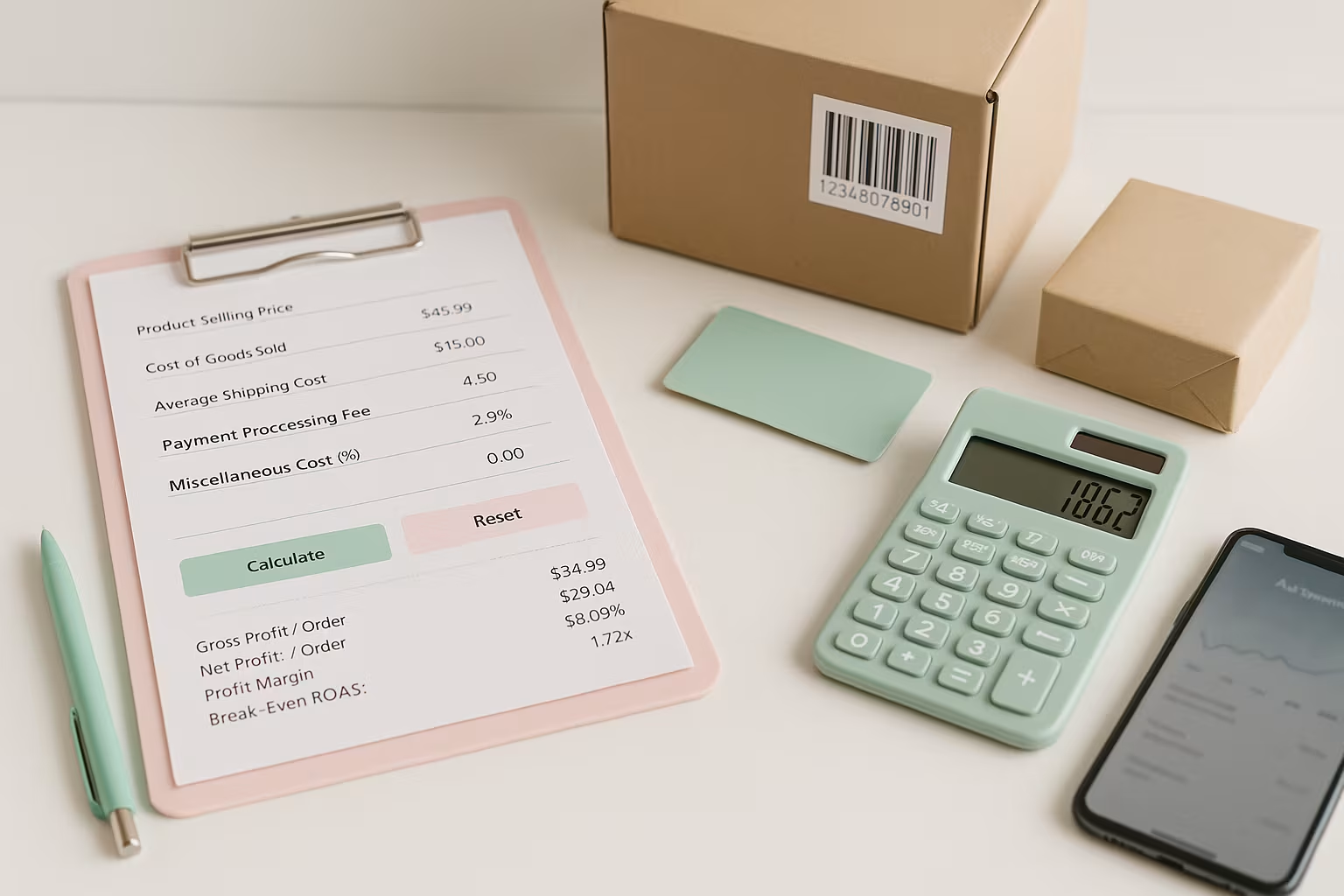
Break-Even ROAS Calculator: Find Out What You Can Afford to Spend on Ads
